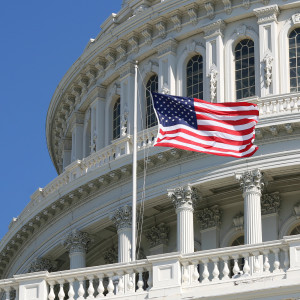How much tax is too much tax?
It’s a practical as well as a moral question. No matter how much you feel a person or corporation ought to pay, the fact is that once they are asked to pay beyond a certain threshold percentage, the tax becomes effectively punitive.
Whether it’s an individual or a company, if it is known that for every dollar earned, has or more will simply be taken — it’s an incentive not to earn the dollar in the first place.
Economic stagnation ensues.
Striking a balance between taxation — and confiscation — is at the heart of the debate over reforming current tax law (Dodd-Frank) both individual and corporate. The top corporate rate is 39.2 percent — arguably confiscatory and without question the highest among Organisation for Economic Co-operation and Development countries. Not even Japan — the most economically torpid of the OECD member countries — has a tax rate that high (it as recently lowered to 38.01 percent).
This puts the United States at a tremendous disadvantage relative to economic rivals that impose less onerous taxes.
And it is at the heart of a debate over whether to continue to apply a so-called worldwide tax to corporations with headquarters within the United States — or to go with a less onerous territorial system.
The worldwide system imposes the same heavy tax burden on all income — including income earned outside the United States (companies are given “credit” for the additional taxes they must also pay to the governments of the countries in which the income was generated and these credits can be applied against the total “worldwide” burden).
In a territorial system, taxes are levied only on income earned within the borders of the country in which the company is doing business. Most OECD countries have adopted territorial rather than worldwide tax systems.
Supposedly — according to advocates, anyhow — the worldwide system is designed to “create equality among resident taxpayers.” But this is hugely misleading, if not Orwellian language.
In fact, it fosters inequality — artificially created — by advantaging companies that pick up sticks and locate their headquarters outside the United States, where they are no longer compelled to pay the extortionate 39.2 percent U.S. top tax. And foreign companies that compete with American-headquartered companies.
The territorial system, in contrast, levels the playing field by taxing all companies within the borders of a given country at the rate applicable within that country. None are artificially advantaged — or artificially disadvantaged — by this system.
Imagine two companies that compete in the same market, but one has headquarters in a western European country where the tax rate is, say, 10 percent less. This is effectively the same thing as earning 10 percent more than the American-headquartered company subject to the top marginal U.S. rate. That means not just more profits for the Euro-headquartered company but also more capital available for re-investment.
It’s hard to quantify the totality of the negative effect that confiscatory taxes have — because it is hard to quantify jobs not created, new products not created. But it is hard to argue that punitive taxes don’t discourage economic growth and job creation.
This is why it’s important to change the current taxation structure from worldwide to territorial. And not only because the tax burden on American companies would become more reasonable but because a more reasonable tax system would encourage companies to locate their headquarters here rather than in more (currently) tax-friendly foreign countries.
The boon to the domestic economy — both regional and national — would be enormous, as more companies choose not to flee to greener pastures and others decide that this — America — is the greenest pasture of all.
Ironically, a lower marginal tax rate would also have the effect of increasing tax revenues — doctrine scoffed at when it was argued by Ronald Reagan’s budget director, David Stockman. But Stockman (and Reagan) were proved right when lower tax rates actually increased federal revenues, as business activity increased.
The same effect would surely occur in this case, as well.
The non-partisan Tax Foundation estimates that almost $1.8 trillion in new investment income would become available if territorial taxation is adopted.
President Trump, a successful businessman, no doubt understands this. He has derided Dodd-Frank as “horrendous” and promised to undo it. Even more telling, perhaps, is that former President Obama’s Economic Recovery Advisory Board, Council on Jobs and Competitiveness, and Commission on Fiscal Responsibility and Reform have all expressed support for a territorial system.
We’ll soon find out whether congressional Republicans also get it. The House has already moved forward on reforming Dodd-Frank in favor of the Financial Choice Act and rejected 14 other regulations imposed during the waning days of the Obama administration.
The time has come for the House and Senate to reform the tax system, too.

